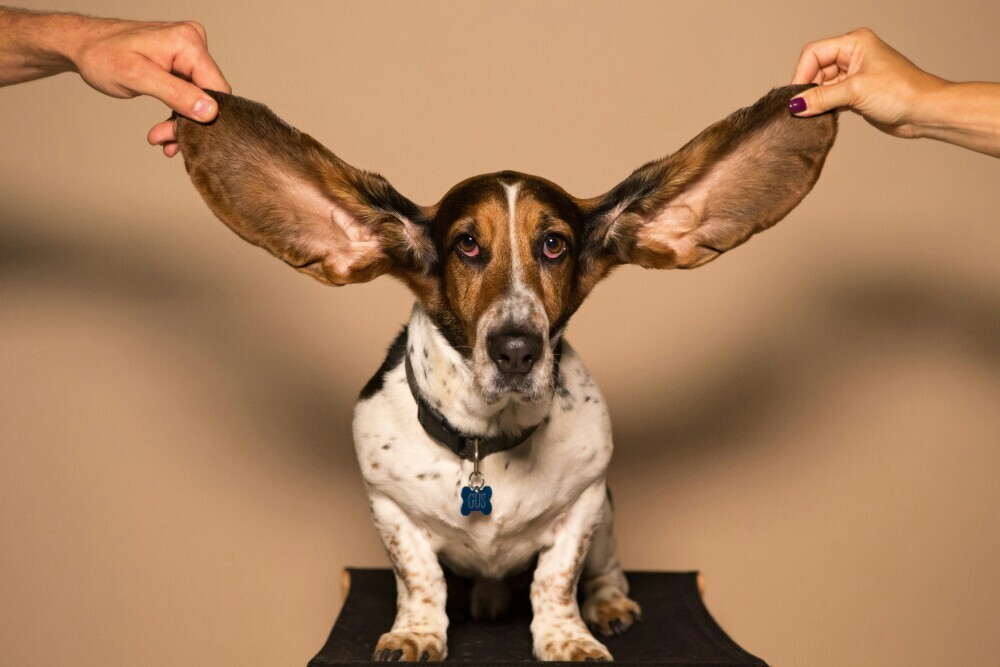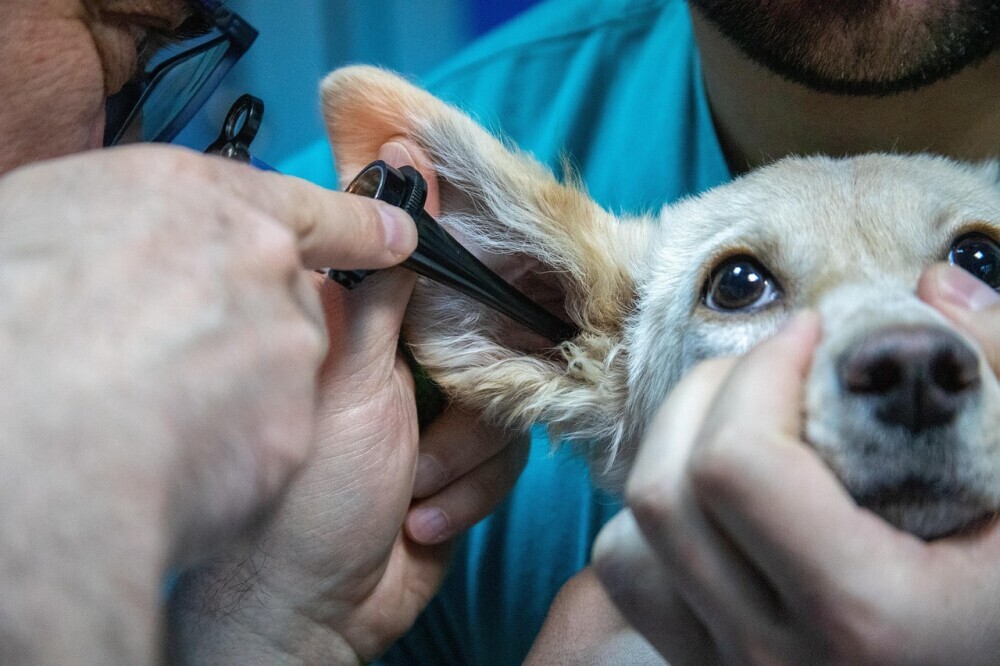
A few of the links in this post are affiliate links. If you buy something, we may earn a small commission (no extra bones from your wallet 🐾). Thanks for helping support the site and all of the dog adventures!
Dog ear infections can really disrupt your pup’s day. Not only does it affect their health, it affects their whole life. They may be sitting on the sidelines, in too much pain to do any of the normal things it once did.
Well we’re here to help your dog get back on track living the best life possible. Today we’re talking about recognizing the signs and treating ear infections, and how you can help prevent them from ever happening. Let’s get into what these infections are and how to handle them.
There are three main types to watch out for: otitis externa affects the outer ear canal, otitis media targets the middle ear, and otitis interna digs deeper into the inner ear. Each of these can make a dog profoundly uncomfortable and, at times, even lead to serious complications.
Several culprits can cause these pesky infections. Allergies often top the list. Just like us, dogs can develop allergies to food, pollen, and other environmental factors. Allergies can adversely affect your pup in a number of ways, so be aware of your dog’s personal allergies.
Ever notice your pup happily diving into the water or rolling around after a bath? That moisture can linger, creating the perfect environment for bacteria and yeast to thrive. Before you know it, your dog could be down and out, unable or unwilling to play anymore.
Also, don’t overlook the possibility of foreign bodies like grass seed finding their way into the ear canal, or even an injury from some rough play. Any type of inflammation or open wound in the ear can lead to an infection if not taken care of swiftly.
How do you know if your furry friend is dealing with an ear infection? Keep an eye out for some telltale signs. A red, inflamed ear with an unpleasant odor and possibly a gooey discharge suggests trouble.
Dogs often communicate discomfort through frequent head shaking or ear scratching. If you spot any of these, it’s time to give your pup’s ears a closer look. These could be signs that something more serious is going on.
Catching these signs early is super important. Timely interventions can save your dog from a lot of discomfort and you from hefty vet bills. Recognize the problem and get treatment before the infection becomes worse.
Ear infections are often linked to overall wellness. Learn how to keep your dog healthy in Dog Health and Wellness Guide.

Proactive Measures: Preventing Ear Infections
Routine ear cleaning is a champion move for keeping infections at bay. Find a gentle cleaner recommended by your vet and make ear care a regular part of your dog’s grooming routine. Be gentle, and avoid digging too deep. After all, it’s more about freshening up rather than making it sparkle!
Your dog’s diet plays a bigger role in overall ear health than you might think. Make sure they’re getting balanced nutrition with plenty of omega-3s and antioxidants. A strong immune system goes a long way in keeping infections at arm’s length. A nutrient rich diet can keep your dog healthy in a multitude of ways.
Watch out for common triggers like allergens or unclean environments. If you’ve got a swimmer on your hands, drying their ears thoroughly after a splashy session is a great habit. Minimizing exposure to allergens and maintaining cleanliness can drastically reduce infection risks.
Regular check-ups with the vet shouldn’t be just for when things go south. Veterinarians can spot early warning signs and suggest preventative measures to help avoid full-blown infections. Keep this in mind when your pup starts showing symptoms.
Vaccinations are a core part of preventative health care. While they don’t directly prevent ear infections, they protect against conditions that might lead to more comprehensive health issues, leading to ear problems.
A balanced diet supports immune function and can reduce infections. Get feeding advice in Dog Nutrition 101: Feeding for Every Life Stage.

Effective Home Remedies and Treatments for Mild Infections
Home remedies can be a solid ally if you catch an ear infection early. First, make sure it’s a mild one. Look for slight redness or minor odor; anything more extreme needs professional eyes. Some infections may need antibiotics or more serious treatment that you probably won’t be able to provide.
Safe, natural remedies like coconut oil and apple cider vinegar come in handy here. Coconut oil’s antibacterial properties can help soothe inflamed skin. A diluted apple cider vinegar rinse can help balance the ear’s pH, making it less habitable for those pesky bacteria.
Aloe vera, with its soothing and healing properties, can also be applied externally around the ear. It’s like giving your pup a bit of spa treatment right at home! Aloe vera can also help with other allergic reactions or skin issues.
Over-the-counter solutions offer relief too, but you need to weigh their pros and cons. While they might provide quick symptom relief, they can sometimes mask rather than fix the problem. If you aren’t sure if you are getting the right thing, consult your vet for their opinion.
How do you know when it’s time for the vet? Look out for persistent symptoms or worsening conditions, like increased redness, swelling, or pain even after trying home remedies. It’s crucial to admit when a problem’s too big for home fixes.
Scratching or shaking the head can indicate pain or irritation. Find solutions in Common Dog Behavior Problems and How to Fix Them.

When to Seek Veterinary Assistance
Sometimes, those furry ears need a professional’s touch. If home remedies don’t seem to work or if the infection seems severe, it’s time to hit the vet. Trust your instincts—if you’re uneasy about something, a vet visit is never a bad idea.
At the vet’s office, you can expect a thorough examination. They might run tests like ear swabs or cultures to identify the specific culprit behind the infection. This helps in planning an effective treatment.
Veterinary treatments often involve antibiotics or ear drops that target specific infections. In more severe cases, surgery might be necessary to clear up chronic issues or deeper infections.
Post-treatment care is crucial too. Follow your vet’s instructions carefully, whether it involves medication schedules or post-surgical care. Keeping those ears dry and clean post-treatment reduces the chances of infections rearing their ugly head again, helping your pup stay comfy and healthy.
Now you’re equipped with the knowledge of what to do when you notice an infection in your dog. Look for the signs, and pay attention when your dog is behaving erraticly. The sooner, the better when it comes to treating infections. And the sooner your dog can begin to act like it’s normal bubbly self!
Puppies can be prone to ear issues if not cleaned carefully. Start with the Ultimate Puppy Training Guide.
